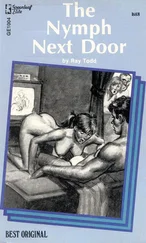Charles Todd - The red door
Здесь есть возможность читать онлайн «Charles Todd - The red door» весь текст электронной книги совершенно бесплатно (целиком полную версию без сокращений). В некоторых случаях можно слушать аудио, скачать через торрент в формате fb2 и присутствует краткое содержание. Жанр: Полицейский детектив, на английском языке. Описание произведения, (предисловие) а так же отзывы посетителей доступны на портале библиотеки ЛибКат.
- Название:The red door
- Автор:
- Жанр:
- Год:неизвестен
- ISBN:нет данных
- Рейтинг книги:3 / 5. Голосов: 1
-
Избранное:Добавить в избранное
- Отзывы:
-
Ваша оценка:
- 60
- 1
- 2
- 3
- 4
- 5
The red door: краткое содержание, описание и аннотация
Предлагаем к чтению аннотацию, описание, краткое содержание или предисловие (зависит от того, что написал сам автор книги «The red door»). Если вы не нашли необходимую информацию о книге — напишите в комментариях, мы постараемся отыскать её.
The red door — читать онлайн бесплатно полную книгу (весь текст) целиком
Ниже представлен текст книги, разбитый по страницам. Система сохранения места последней прочитанной страницы, позволяет с удобством читать онлайн бесплатно книгу «The red door», без необходимости каждый раз заново искать на чём Вы остановились. Поставьте закладку, и сможете в любой момент перейти на страницу, на которой закончили чтение.
Интервал:
Закладка:
He had had the boy pinned against the parapet. He should have brought him in, in spite of the constable's interference. He should have stopped him before he killed.
Now it was too late.
Nodding to the attendant to cover the body again, Rutledge said to Biggin, "It isn't Teller. But I can probably identify the person who did this. If you bring in a suspect, send for me."
"Fair enough," Biggin said.
Rutledge left the morgue in grim spirits, and after dropping Biggin at his station, he drove back to the Belvedere Clinic.
Mrs. Teller had gone again to her husband's empty room, and he found her there, staring out the window, lost in her own thoughts.
She turned as Rutledge stepped through the door. He could see the worry in her face, and he wondered again at the family's abandoning her at such a time.
It didn't make sense.
He said nothing about the dead man, smiling instead and telling her, "No news, I'm afraid, but the police have been bringing me up-to-date on their activities." He had spoken to Biggin at length in the motorcar. "The search has been expanded to include the river-"
She cried out at that, but he said, "Mrs. Teller, we must be realistic. Your husband has been under some stress. He may have left the clinic with the intent to do himself a harm, and if we're to find him in time we must try to understand his state of mind."
"No," she said forcefully. "Walter wouldn't kill himself. I know my husband, he has no reason to want to die and every reason to want to live. I won't listen to this."
He spent another ten minutes trying to make a dent in her certainty.
Finally he asked, "If we knew what had caused your husband's extraordinary illness, we might be better able to judge where he has gone and why. What happened to him between the bank and your house that changed him and brought on his paralysis?"
"Don't you think I'd have told Dr. Fielding-or the doctors here-if I had any idea at all?" She was angry with him. "My sister was here earlier this morning. I asked her if she knew anything that would help. Sometimes Walter talked to her about his mission work. Mary has always strongly supported missions, and she has no illusions about the hardships people in the field endure. She couldn't think of any reason either. And I could see that she was as worried as I was. So I didn't have the heart to ask her what I really wanted to know. I wondered if someone could have cursed Walter out there. I've heard about such things. I mean, I don't really believe in them, and I'm sure Walter doesn't either. Still, you never know-"
Her voice broke and she put her hands over her eyes, partly ashamed of her fears and partly afraid to speak them aloud, to give them a reality.
Rutledge had nothing to say in response. It had hardly been twenty-four hours since her husband left, but irrational fears were already supplying answers to questions that had none.
He summoned a nursing sister to come and sit with her, then left.
Chapter 9
Rutledge found the London addresses for Edwin and Peter Teller, and drove to each house, but he was informed by the maids who answered the door that the family was away.
Wherever they were searching, he had a feeling that they were having no better luck than he had had in finding their brother.
The second day of Walter Teller's disappearance brought no new information. It was as if he'd never existed.
Hamish said, "If he were wandering about-truly lost-someone would ha' noticed him and brought him to a hospital or the police."
It was what had been on Rutledge's mind all morning.
"He might not wish to be found," he replied. "An alternative to suicide."
"There's that, aye," Hamish agreed.
It made a certain kind of sense. If one can't face the nightmare, one can try to avoid it. But what sort of nightmare haunted a man like Teller?
He went back to question Teller's doctors.
They had failed to unlock their patient's secrets.
He said, "Teller's wife has been casting about for answers as well. She has even considered a curse on her husband, from his time in places like West Africa."
"Curses are interesting things," Dr. Davies replied. "They work when people believe that they will work. In short, the curse is effective because the victim accepts that it will happen, and that nothing can be done to prevent it from happening as foretold. In my view, Teller was far too intelligent-and knowledgeable about the people with whom he worked-to be taken in by such a threat. I've talked to several other missionaries who told me that a curse had been put on them by a tribal shaman, a way of discouraging competition, one might say. And of course it failed, which caused no end of trouble for the shaman. His power was seen to be weak."
"What would be a modern equivalent of a curse?" Rutledge asked.
"Ah," Davies answered him. "That's an even more interesting question. I expect it would take the form of something happening once and the fear that it could happen again. If one finds an intruder in one's house on a dark night, it might well be something one would fear, coming into that same house on another dark night." He smiled. "Guilt can produce irrational fears as well."
"Was Teller likely to die of his illness? Was that on his mind?"
"At a guess, no, it wouldn't have killed him. The fact that he recovered so quickly points to the same conclusion."
Dr. Sheldon put in, "I can tell you this. Walter Teller wasn't afraid of dying. When he turned his face to the wall, it was his acceptance that death was preferable."
"Preferable to what?" But they had no suggestions in Teller's case.
He said, "Do you have any reason to think that Walter Teller was being poisoned?"
"No. We considered poisoning. We found no evidence of it. Is there any reason to believe-"
Rutledge cut in quickly, "No. It's something a policeman must bear in mind."
Hamish said as they left the clinic, "It isna' likely that he went away to die. He could ha' hanged himself in his room while his wife was resting at his brother's house."
"He didn't want his wife to find his body."
Rutledge spent much of that day and well into the early evening going to police stations all across London, showing the photograph he'd been given to each shift of constables coming in or going out.
They studied the photograph, but no one had seen anyone resembling Teller. And as a rule, constables on the street could be counted on to remember the faces of people not normally seen on their patch, keeping an eye out for troublemakers and strangers alike. Even a well-spoken, well-dressed man like Walter Teller would be noted for future reference.
One constable, shaking his head, said to Rutledge, "It's more likely that he found a cab soon after leaving the clinic, well before the search began. He could be anywhere now. He could have taken an omnibus, a train, or cadged a lift from someone."
But Rutledge had already sent a man from the Yard to speak to any cabbie who had taken up custom near the clinic at four o'clock on the afternoon in question. No one remembered seeing Walter Teller or even someone who looked like him.
"Ye're searching for a needle in a haystack," Hamish told Rutledge.
"Or for one man when there might well have been two, if someone had come for him, or was there to help him dress and leave."
The clinic had had no record of visits to Walter Teller, other than the immediate family. Still, it was possible to use another patient's name to pass the porter and gain access. But that led him nowhere, either.
Rutledge had even driven to Essex, to the house of Dr. Fielding, arriving there just as Fielding was preparing for his first patient of the afternoon.
The man reluctantly put aside the pipe he'd been smoking and addressed himself to Rutledge's questions about Walter Teller.
Читать дальшеИнтервал:
Закладка:
Похожие книги на «The red door»
Представляем Вашему вниманию похожие книги на «The red door» списком для выбора. Мы отобрали схожую по названию и смыслу литературу в надежде предоставить читателям больше вариантов отыскать новые, интересные, ещё непрочитанные произведения.
Обсуждение, отзывы о книге «The red door» и просто собственные мнения читателей. Оставьте ваши комментарии, напишите, что Вы думаете о произведении, его смысле или главных героях. Укажите что конкретно понравилось, а что нет, и почему Вы так считаете.












